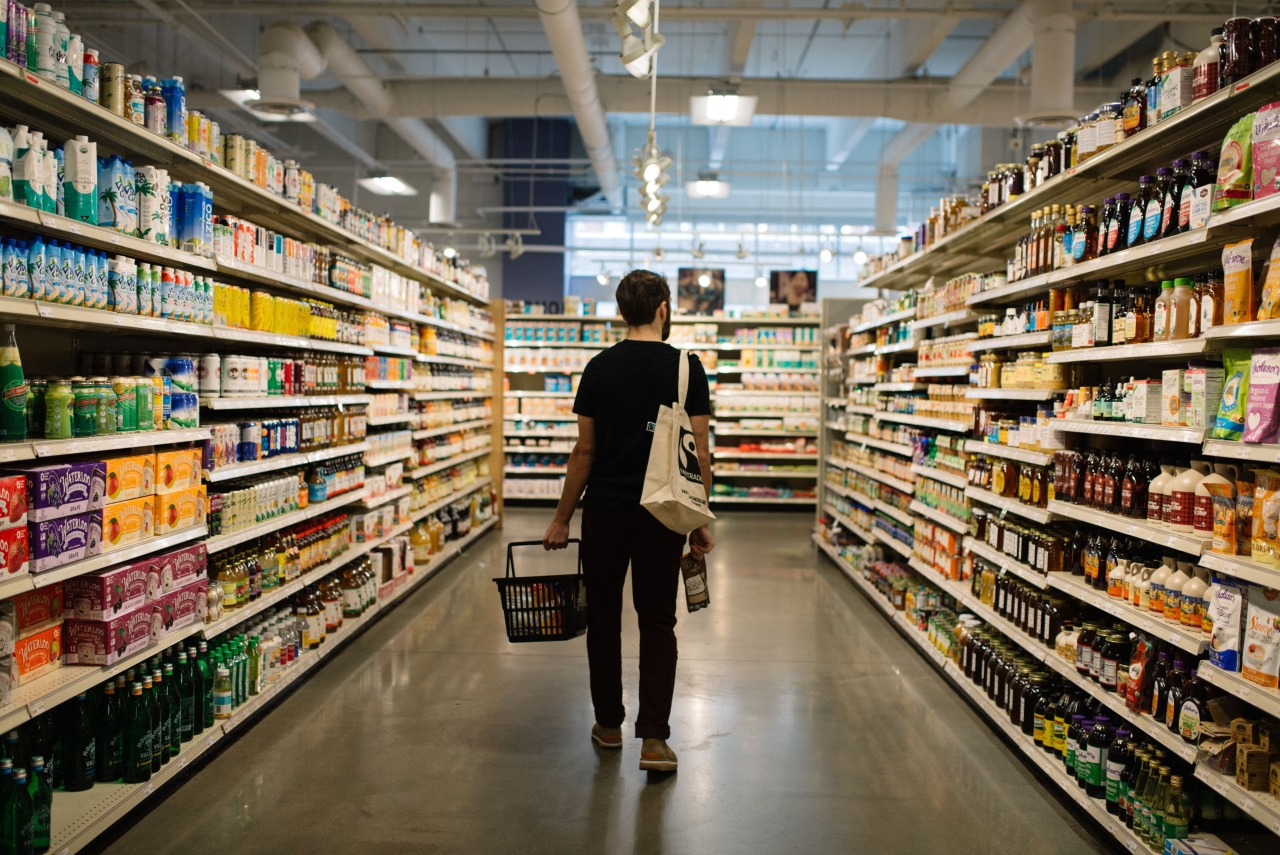Fairtrade America Reveals Top Consumer Trends for 2022
Forecast predicts a need for brands to make good on their sustainability and human rights claims, and make it easier for shoppers to find ethically-sourced goods
Published 12-20-21
Submitted by Fairtrade America

WASHINGTON December 20, 2021 /CSRwire/ - Fairtrade America - an independent, third-party certification that partners with farmers and workers to negotiate better prices, decent working conditions, and a fairer deal overall - today released five key trends that will impact how brands source ingredients and work to have a larger impact on people and the planet in 2022.
Shoppers are increasingly looking for ethically-sourced products. More than half of respondents to Fairtrade’s biennial Fairtrade Consumer Insights report, conducted by GlobeScan, confirmed they have changed their purchasing choices within the past year to make a difference on economic, social, environmental or political issues, indicating people increasingly see their everyday shopping as an important way to make a difference.
Fairtrade America predicts this consumer attitude will play out in the following ways in 2022:
- Consumers will continue to demand companies focus more on sustainability. As climate change continues to worsen, consumers are looking to brands to provide sustainably sourced and produced products they can feel good about purchasing. In fact, more than a quarter of consumers say they always or usually base their purchases on sustainability, which is an increase of 11 points over the last 14 years and up 4 points from 2019.
Climate studies predict that by 2050 coffee, tea, cocoa and cotton will be so severely affected that production in some areas will even disappear. While the world’s wealthiest 10% are responsible for 50% of global emissions, it is those disadvantaged by unfair trade systems who are enduring the extreme hardship caused by climate change. At this year’s COP26 summit in Glasgow, more than 30,000 consumers the world over voiced their demand for businesses and governments to act on behalf of farmers facing the challenges of an unstable climate by signing Fairtrade’s “Be Fair With Your Climate Promise” petition.
Companies certified by Fairtrade International follow Standards set in accordance with the ISEAL Code of Good Practice on Standard Setting, and about 30% of those Standards aim to minimize farmers’ impact on the planet, while still meeting them where they are both in terms of their geographical realities and their business growth. Fairtrade Standards ban the use of dangerous pesticides and GMO seeds, protect natural resources and encourage eco-friendly cultivation. Fairtrade also incentivizes organic farming through an increased Premium and Minimum Price.
- Advocacy for human rights and fair wages will go global in scale. In 2021, 73% of Fairtrade shoppers were willing to pay more for a product to ensure farmers and producers were paid a fair price; specifically, up to 35% more per pound for Fairtrade coffee and 30% more per bar for Fairtrade chocolate. About three quarters of consumers familiar with Fairtrade agree that when they buy certified products, they “feel part of a community standing up for fairness and justice.”
Large companies are re-examining their supply chains to ensure they are meeting these consumer demands. Earlier this year, Unilever announced a commitment to ensuring that workers who directly supply its goods and services across 190 countries will receive a living wage by 2030.
Many farmers and workers around the world live on less than $2 per day. Fairtrade breaks down the systems that trap farmers in cycles of poverty by addressing them at their core – price. The Fairtrade Minimum Price acts as a safety net for farmers when prices fall below a sustainable level. Evaluated every five years, the Minimum Price covers the costs of sustainable production and is established in partnership with producers, businesses, and other stakeholders. Fairtrade’s model also includes a Premium fund that farming cooperatives earn on top of the price. Co-op members vote to determine how the money is spent, typically on community programs such as improving infrastructure or accessing education. In 2020, Fairtrade Premium funds contributed more than $218M to farming communities.
- Shopping for everyday goods online will remain the new norm. While the world is slowly reopening amid the pandemic, COVID led more US consumers to make purchases online, and that is a trend that will continue into 2022. In 2020, US ecommerce grew by 32.4% with a total spend of $791.70 billion, according to Digital Commerce 360. This digitalization makes it easier for shoppers to compare products and learn whether or not a company’s sourcing and manufacturing practices align with their values.
Fairtrade is making this comparison even easier by partnering with online retailers like Amazon to help shoppers find Fairtrade certified products through its Climate Pledge Friendly program. Fairtrade International is one of the few certifications chosen by Amazon to launch the program, which continues to prove successful in nudging purchasing behaviors. Fairtrade America also launched a Product Finder with hundreds of certified goods sold in the US to help consumers easily identify and purchase Fairtrade certified products.
- Shoppers will seek out organizations and companies that promote gender equality. Frequent Fairtrade shoppers care more than average about women’s causes, according to GlobeScan survey data, which is not surprising given that female producers worldwide are still fighting for equal rights and opportunities. A large proportion of the world’s food is farmed by women, yet there is a significant “gender gap” in agriculture leaving female farmers with less access than their male counterparts to resources like land, information, credit, training and supplies.
Fairtrade certification means helping to rebalance gender equality and strengthen women’s and girls’ human, social, financial and physical capital in their farming cooperatives and communities. For example, Fairtrade’s Women’s School of Leadership provides training and mentorship in leadership, economic autonomy, self-esteem and more, helping female farmers seize opportunities to speak up and become equal representatives. Additionally, because the Fairtrade Standards require all cooperative members to vote on how to use their Premium funds, Fairtrade often gives women a greater voice in their communities.
- More mission-focused brands + brand transparency. There is a clear consumer desire to support brands that are not only taking care of their own teams and suppliers, but also contributing to making the world a better place. A study by Zeno Group found that consumers are up to six times more likely to buy from companies with a strong purpose. Additionally, 71% of consumers indicated that traceability is very important to them and that they are willing to pay a premium for brands that provide it, according to IBM Research Insights. This means companies have an opportunity to attract new customers and drive loyalty with existing shoppers by authentically developing a transparent supply chain and by celebrating how they work to benefit people and the planet.
More than 75% of consumers familiar with Fairtrade agree that the Fairtrade label makes it easy to decide if a product is ethically and responsibly produced. While many companies today are mission-based, larger organizations are also meeting this consumer demand by partnering with Fairtrade to certify new product lines and/or ingredients. For example, Russell Stover Chocolate – a leader in the chocolate industry for more than 98 years – recently released Joy Bites, its first-ever collection of no-sugar-added chocolate bars carefully crafted with Fairtrade certified cocoa that comes in resealable packaging that is 100% recyclable with FSC-certified outer sleeves.
“We are energized by how consumers are showing a readiness to advocate for people and the planet through their own everyday choices,” said Peg Willingham, Executive Director, Fairtrade America. “At Fairtrade America, we will continue to partner with and support companies who want to balance the power of global trade to benefit the farmers and workers behind our favorite products, and I’m looking forward to seeing how brands take on this cause in 2022 and beyond.”
Fairtrade envisions a world in which all farmers and workers can enjoy secure, sustainable livelihoods, where trade is equitable and they have the freedom to decide on their own futures. When consumers choose to buy Fairtrade certified products, they are part of an ecosystem that enables farmers and workers to get a fair deal and have access to the resources needed to farm sustainably.
To easily identify and purchase Fairtrade-certified products, check out the Fairtrade America Product Finder including hundreds of certified goods sold in the US with more products being added on a regular basis. Businesses interested in becoming Fairtrade certified can start their journey on the Fairtrade America website.
###
About Fairtrade America
Fairtrade America works to support farmers and workers in regions disadvantaged by unfair trade systems by partnering with businesses and retailers to implement ethical production practices and assisting shoppers in making informed purchasing decisions. Fairtrade America is the US representative of Fairtrade International, the most recognized ethical label in the world, with national offices in more than 30 countries across the globe. A non-profit 501(c)3 organization, Fairtrade America is part of a global movement for change. Learn more at www.fairtradeamerica.org, and by connecting with Fairtrade America on Facebook, Instagram and LinkedIn.

Fairtrade America
Fairtrade America
Fairtrade America works to rebalance trade, making it a system rooted in partnership and mutual respect rather than exploitation. It's about businesses, shoppers, farmers and workers all working together so we can all experience the benefits of trade. Fairtrade America is the U.S. branch of Fairtrade International, the original and global leader in fair trade certification with more than 30 years of experience working for fair trading practices in more than 30 countries across the globe. A non-profit 501(c)3 organization, Fairtrade America is part of the world's largest and most recognized fair trade certification program — part of a global movement for change. Learn more at fairtradeamerica.org, and by connecting with Fairtrade America on Facebook, Instagram and LinkedIn.
More from Fairtrade America

